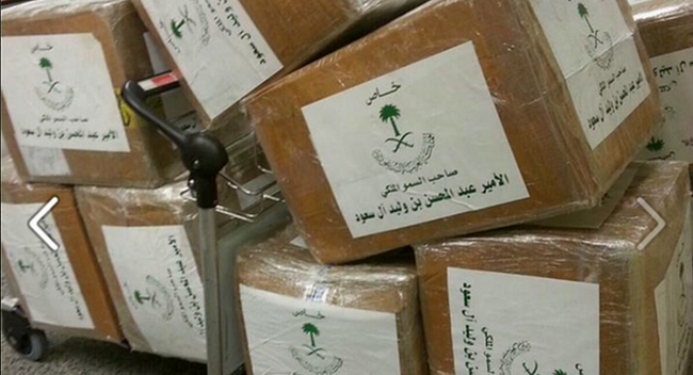The British magazine The Economist has revealed the role of Saudi princes in smuggling drugs from Syria for sale in the Arab Gulf.
The magazine wrote that some Saudi princes use special planes to smuggle drugs from Syria, and these drugs are sold at twice the price in the Arab countries of the Persian Gulf, including Saudi Arabia.
In fact, Saudi Arabia and its prominent figures are no exception to their links to gangs and smuggling operations. Since drug addiction is common among the wealthy sections of Saudi society and its officials, smuggling gangs consider Saudi Arabia a good destination for drug trafficking, and other Arab countries, and even Lebanon itself, have fallen victim to this.
In the largest operation at Beirut International Airport, Lebanese security services seized large quantities of drugs from the Saudi prince, who was flying to his destination on a private jet.
Abdul Mohsen bin Waleed bin Abdul Mohsen bin Abdul Aziz Al Saud is a member of the Saudi royal family known as “Prince Captagon” in Lebanon.
The Riyadh government claimed last April that it had thwarted a smuggling operation of 2.4 million Lebanese narcotics that smugglers were trying to smuggle into Saudi Arabia. Subsequently, Riyadh banned the import of vegetables and fruits from Lebanon to Saudi Arabia under the pretext of “using them to smuggle drugs into the kingdom.”
But with the Lebanese besieged by the US hunger policy and the US-Zionist conspiracies to encroach on their rights and sovereignty, Saudi Arabia’s recent move means nothing more than serving its agenda; In particular, Riyadh, along with Washington and Tel Aviv, is pursuing a key goal in Lebanon: disarming Hezbollah and trying to remove it from the Lebanese power scene.
Some experts also suggest that Saudi Arabia may intend to replace Zionist products with Lebanese ones; Like the recent move by the UAE to sign a compromise agreement with the Zionist regime and bring goods produced in the Zionist-occupied areas to the markets of its own country and other Persian Gulf countries with the label of the West Bank and the Jordan River, a move that has provoked widespread reactions from users. And created several campaigns to condemn it.
The Lebanese daily Al-Akhbar, referring to the Saudi hostile act, wrote that the Saudi government is seeking to hit the Lebanese economy by banning the import of vegetables and fruits from the country.









